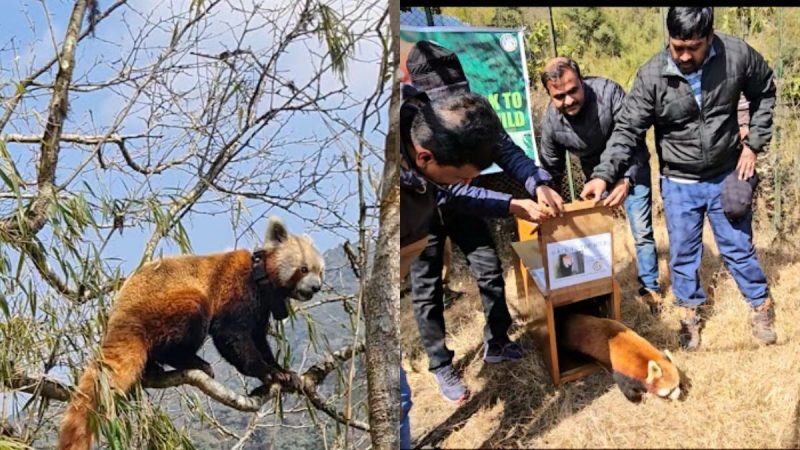Darjeeling’s Padmaja Naidu Himalayan Zoo Park (PNHZP) has made significant strides in red panda conservation. Its Red Panda Breeding and Augmentation Programme has been selected as a finalist for the prestigious 2024 World Association of Zoos and Aquariums (WAZA) Conservation & Environmental Sustainability Awards.
Padmaja Naidu Himalayan Zoo
View this post on Instagram
WAZA holds its awards annually to recognise outstanding conservation efforts. This year, they will announce the winner at the 79th WAZA Annual Conference at Taronga Zoo in Sydney, Australia, on 7th November 2024. By being shortlisted as one of the top three finalists, the Darjeeling-based zoo has secured its place among the global leaders in wildlife conservation.
One of the key elements of PNHZP’s programme is the release of captive-bred red pandas into the wild. The zoo reintroduced nine red pandas (seven females and two males) into their natural habitat at Singalila National Park (SNP) in West Bengal between 2022 and 2024. This park, which lies along the Indo-Nepal border, offers the perfect conditions for red panda survival. Three of the seven females have already given birth to five cubs in the wild, a promising sign for the species’ future in the region.
Deforestation And Human Encroachment
View this post on Instagram
The zoo’s conservation efforts do not stop at breeding. PNHZP works closely with the Wildlife Wing of the Government of West Bengal to restore habitats within Singalila National Park and the surrounding Darjeeling division. Habitat restoration is crucial for ensuring that red pandas can thrive in their natural environments, where they face threats from deforestation and human encroachment.
In addition to its breeding and habitat restoration initiatives, PNHZP has partnered with several research institutions, including the Centre for Cellular and Molecular Biology (CCMB), the Indian Institute of Science Education and Research (IISER), and the Wildlife Institute of India (WII). These collaborations aim to enhance scientific understanding of the red panda’s genetics, health, and behaviour.
The zoo has further bolstered its conservation efforts with a state-of-the-art Biobanking and Genetic Resource Facility. This facility preserves vital genetic materials, including gametes, tissues, and DNA of red pandas and other endangered species.
PNHZP’s commitment to preserving red pandas goes beyond just protecting individual animals. Its initiatives are part of a broader strategy to restore ecological balance in the Eastern Himalayas, where the red panda is a flagship species. By safeguarding their habitats, the zoo is also protecting a wide variety of flora and fauna that share the same ecosystem.
Cover Image Courtesy: Press Information Bureau/Website
For more such snackable content, interesting discoveries and the latest updates on food, travel and experiences in your city, download the Curly Tales App. Download HERE. First Published: October 08, 2024 11:00 AM




